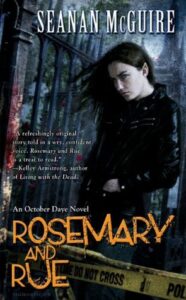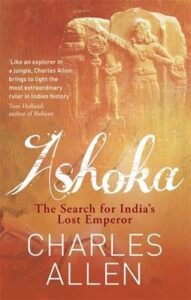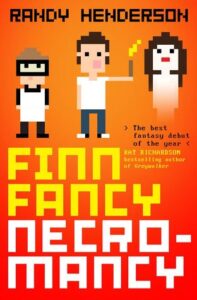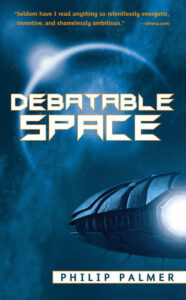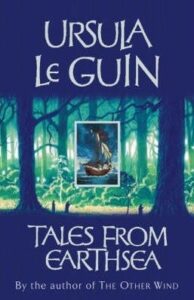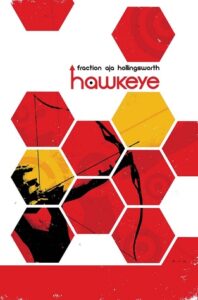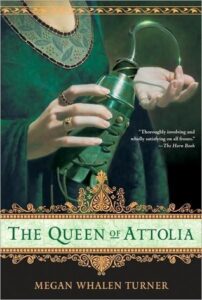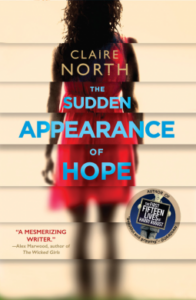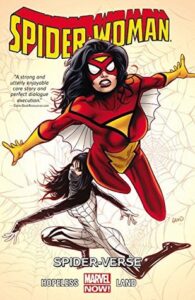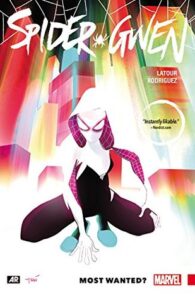 Spider-Gwen: Most Wanted?, Jason Latour, Robbi Rodriguez
Spider-Gwen: Most Wanted?, Jason Latour, Robbi Rodriguez
In the Spider-verse event, it turned out there was a world in which Gwen Stacey was bitten by the radioactive spider, and in the end Peter Parker actually died. The origins are a little murky, because thankfully they don’t rehash the origin story, leaving it just sketched in and suggested. This book has Gwen back in her own universe, leading her normal life… and leading her cop father an awful dance while she’s caped up. Her costume design is really cool (love the hood), and Rodriguez’s art works well — and it was a relief reading this so soon after The Movement, which was typically DC-ian in its gloomy colour palettes.
The story itself doesn’t really get on its feet here, I think; we’re still trying to get used to who Gwen is here and how her world has changed. Like, it turns out Mary Jane Watson is… a bit of a diva. And she and Gwen are in a rock band together. Which Gwen has been kind of letting down and might quit? Maybe? But then she turns up and it’s all good.
At times, it’s a little bit goofy — it might be less so if you’ve read Spider-verse, but suddenly having Spider-Ham (a version of Peter Parker who is a pig, no I am not kidding) appear as Gwen’s conscience is a bit outta nowhere from my point of view.
It’s not groundbreaking, except that it’s another female character stepping up and taking on a big role, and dealing in different ways with the same problems. I loved that Gwen went to speak to Aunt May, for example, and the way they talked things over. It’s not the level of quality of, say, Ms Marvel, but it’s fun and I’m looking forward to the next TPB. (And wondering why my pull list on Comixology has disappeared…)

